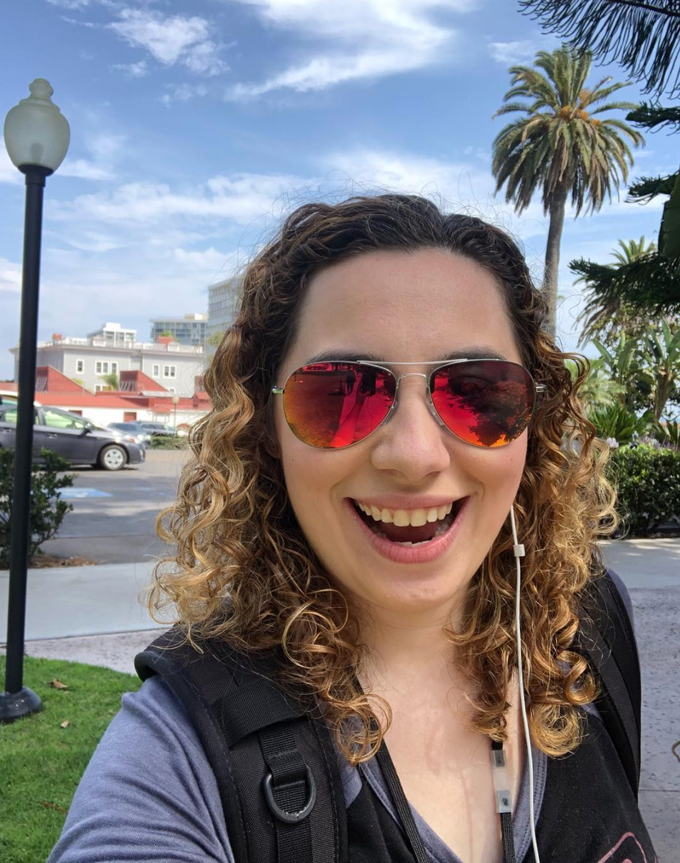Inside the socially-minded cyborg sci-fi drama Madi with Duncan Jones and Alex De Campi
Special forces soldiers stuck with student loan-style debt for their cybernetics? Inside Madi: Once Upon a Time in the Future
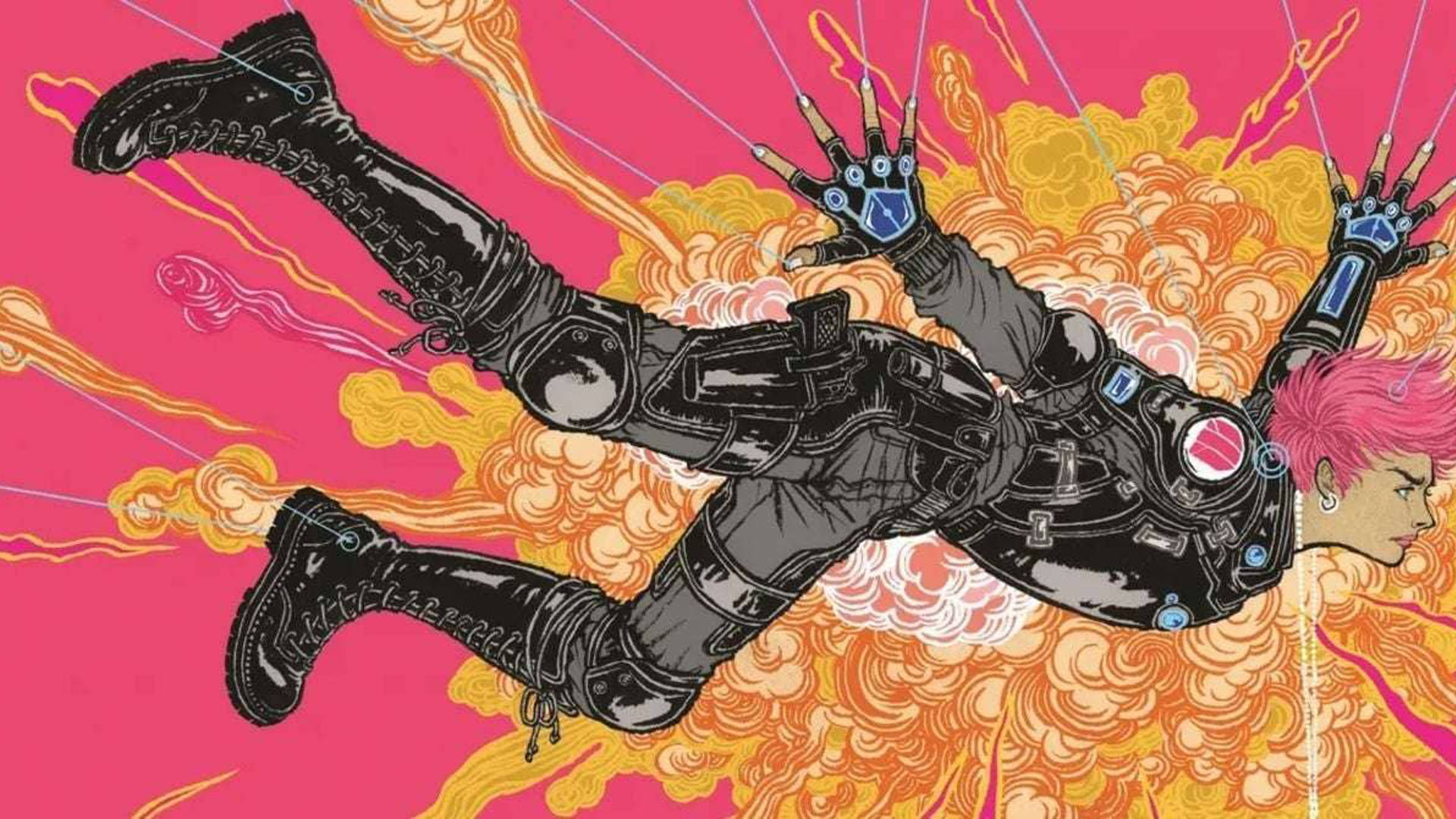
Most college students have to deal with student loans years after they finish school, but in the sci-fi graphic novel Madi: Once Upon a Time in the Future, soldiers leaving the service are still left with paying for the cybernetic technology they used to stay alive during their military days.
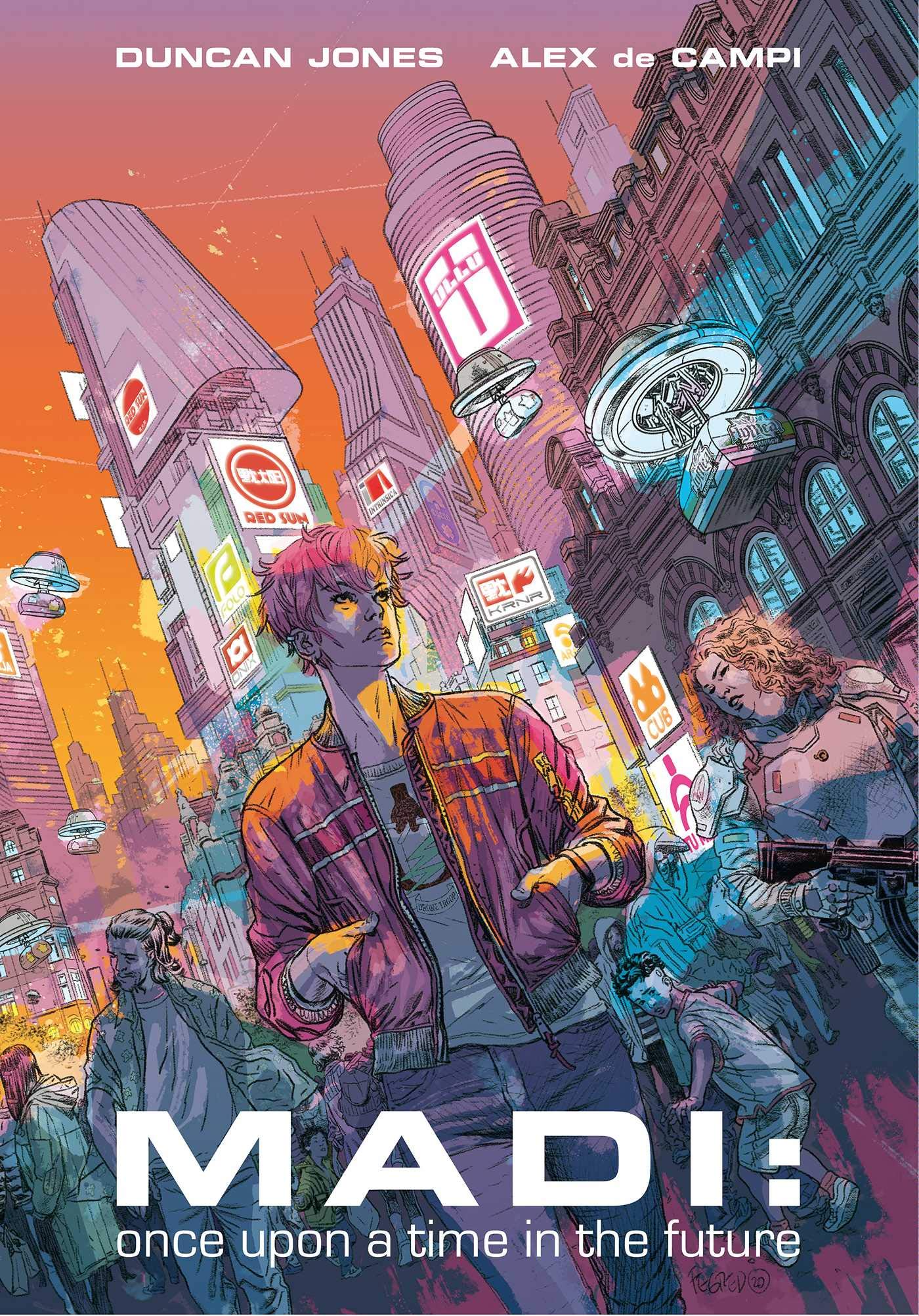
Film writer/director Duncan Jones has teamed with directtor-turned-comics writer Alex De Campi for Madi, making his comics debut with the help of eight popular comics artists ranging from Glenn Fabry to Pia Guerra. Originally funded this time last year on Kickstarter, Madi is available now through Z2 Comics.
The Madi OGN follows Madi Preston, a veteran of a British special operations squad. After completing her service, she and her fellow soldiers have retired to civilian life but end up back in service - this time, as private military - to pay off the debts incurred by buying cybernetics to help them from their soldiering days. Not ideal, but she's working it off until one job has her wrapped up in the kidnapping of a child that her handlers told was was just a piece of tech.
Now that Madi is available for purchase, Newsarama spoke with co-writers Duncan Jones and Alex De Campi about this 260-page OGN, and take a deep dive into the collaborative process, Jones' acclimation to creating comics, and what the Madi OGN could set up for the future - be it more comics, or possibly a film/tv adaptation.
Newsarama: Duncan, How do you think your skills as a director helped you adapt to comic books?
Alex De Campi: Jumping in here to comment that in terms of working on the script (which was a shared Google Doc), Duncan probably had a slightly easier time than he may have had with other writers, because I have a terrible habit of calling shots in panels. I started off as a music video director, and honestly, the language of cinematography is really damn useful when describing what you want to see in a rectangular box.

Duncan Jones: What Alex said. I think it helped that I'm very comfortable with collaborative creativity, and when you work with an expert in anything, you'd be foolish not to let them do what they are good at. Alex is Eisner-nominated. I'm on her turf
Comic deals, prizes and latest news
Get the best comic news, insights, opinions, analysis and more!
De Campi: From my point of view, Duncan stepped in and it was seamless, there was no learning curve, he just got it, and did it.
Jones: The fun for me was as much in learning as much as I could from Alex in how to work in this medium as it was having this incredible book at the end of it. My job was to always point to the narrative 'True North.'
Nrama: What went into building this futuristic sci-fi world? How did you try to make it different from other science fiction?
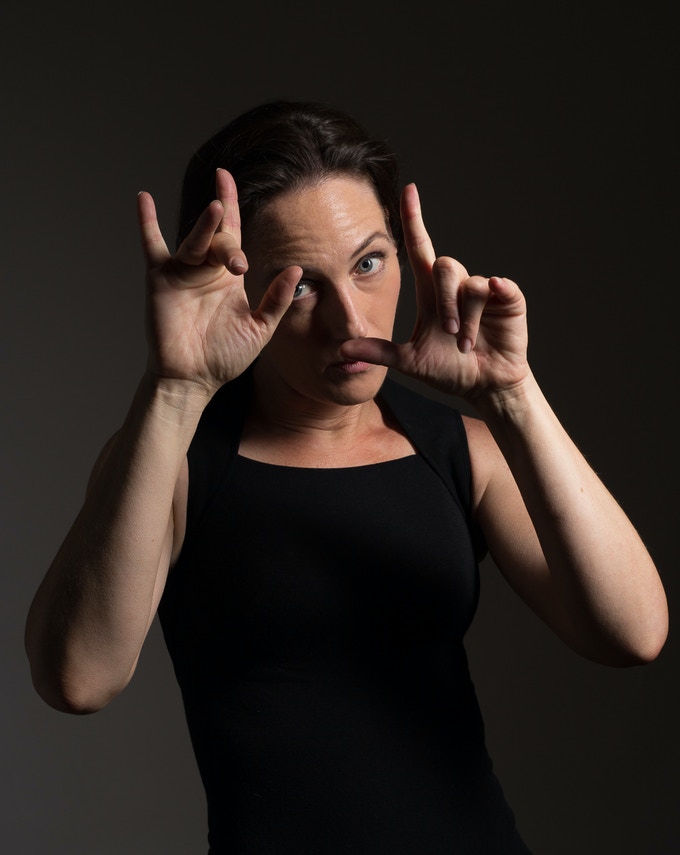
De Campi: The look of the book was very much a collaboration between Duncan, myself, and the artists - Duncan had some specific ideas and visual references about certain things, and then I thought up some other stuff (the kitty cops, for example) and then each artist created the rest.
Jones: I have a few things that are a part of my sci-fi vocab now. Gerty from Moon, the capsule apartment building that got some screen time in Mute. I wanted to make sure that a few of those things got worked into our road trip in Madi.
Nrama: How did you try to make it different from other science fiction?
De Campi: I dunno. The world of Madi is our world, but more. In a lot of ways, it doesn't feel fantastic to me. It feels like what we're heading towards. We didn't think a lot about how to make the book different from other science fiction. Other work is irrelevant. You tell the best story you can, and hope.

Jones: Like Alex said, it's a recognizable future. The old cars are Teslas and Rivians. There's a new casino that is built as a bridge over the Grand Canyon. Camden Town and the tube system in London are VERY recognizable, just given a few decades of future tech and aging.
Nrama: The idea of family seems to be at the center of Madi. Can you talk about that?
De Campi: The themes of family in the book, whether by blood or close friendship, are pretty universal. And especially after a year in lockdown, they've become more relevant - it's easy to forget that there are people out there who love you, and will help you if you ask. But the flip side of that is also when things get tough, some people that you thought were better show you their true colors.
Nrama: Speaking of family, what made you want to use a handful of artists for this book instead of just one throughout?
De Campi: Couple of reasons.
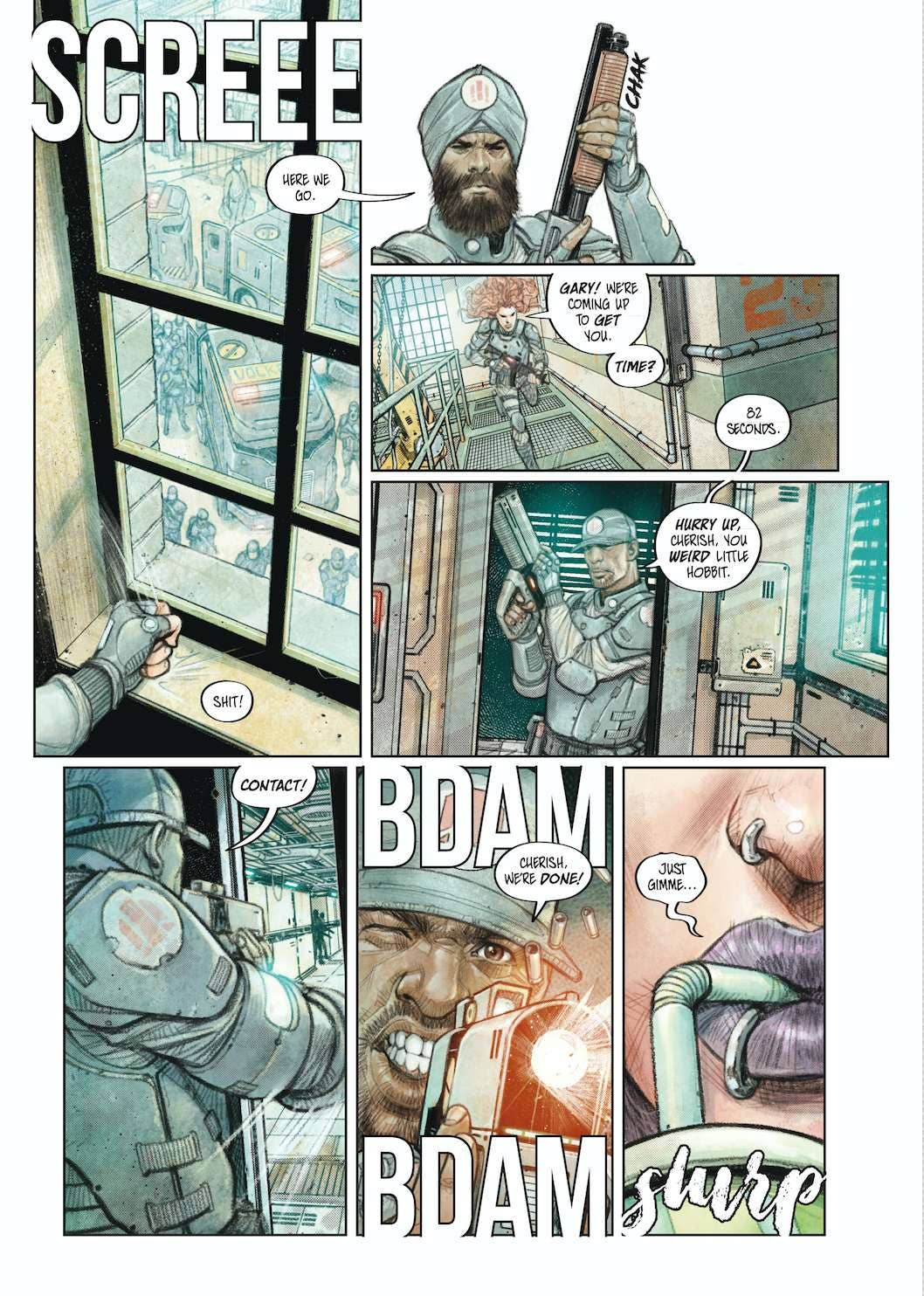
First, finding the space on any top artist's schedule to draw a 260-page OGN, whew, that's tough. We might not have gotten that slot for a year - I've certainly waited far longer than that to work with artists - and then it would realistically take them two years to draw the book. So, we could have gone with one artist, but it would have then been like a 2025 book.
The other reason was that this may be Duncan's only graphic novel - and he knows comics, really well. So, I thought, well, let's let him work with a bunch of cool people. He's always wanted to work with Simon Bisley? Okay, check. He loves Rufus Dayglo? No problem. And then there were a few people I brought to his attention, like 'you gotta check out Annie Wu and Pia Guerra and James Stokoe'… Plus, it very much suited the story, which is a road trip story, so each artist essentially has a location and some secondary characters that they own.
Nrama: Are there other stories you'd like to tell in the comic book medium?
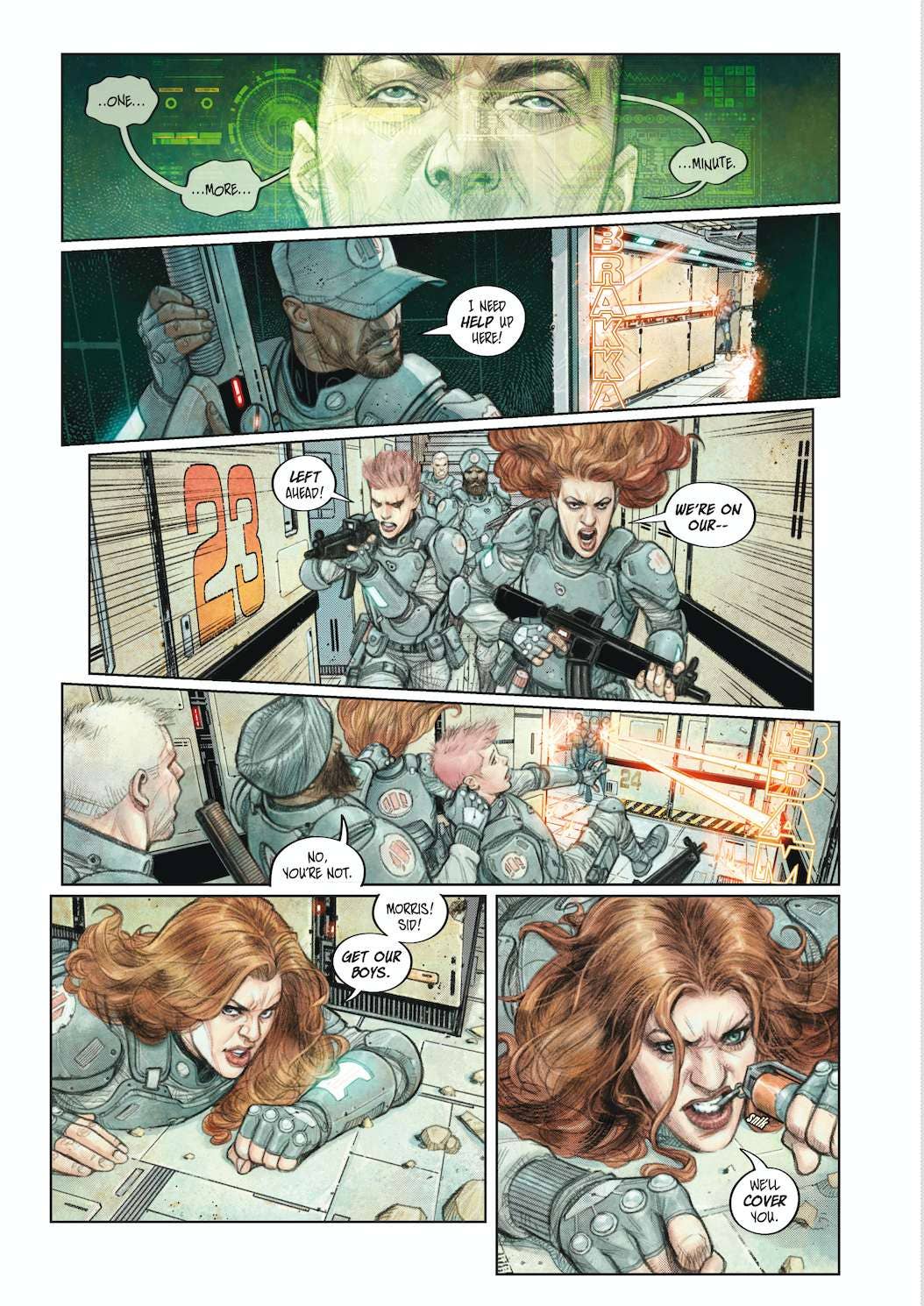
Jones: Yes… I want to see how Madi is received before I jump back in. It's not inexpensive to make a book like this, and to do it right takes time, but I really enjoyed it. Making a graphic novel (or more manageable comic run) is like nothing else. It's definitely liberating!
Nrama: Do you have any more plans for this universe in particular?
Jones: I really want to do more with J Squad, the military unit that Madi is a part of. Among my many loves growing up was the British comic Commando, and it would be so much fun to play around with the conventions of that old format in the Corporate-run world I started to flesh out in Moon, Mute, and Madi. And obviously, I would love to see where the characters go at the end of this book.
Nrama: Would you like to work together on another comic book project or even create together outside the medium?
De Campi: Definitely. We've tossed around a few ideas, but we've still got a lot going on with Madi's launch and getting the books to backers in Europe and the UK, so until Madi really is finished as a project we're mainly focused on that.
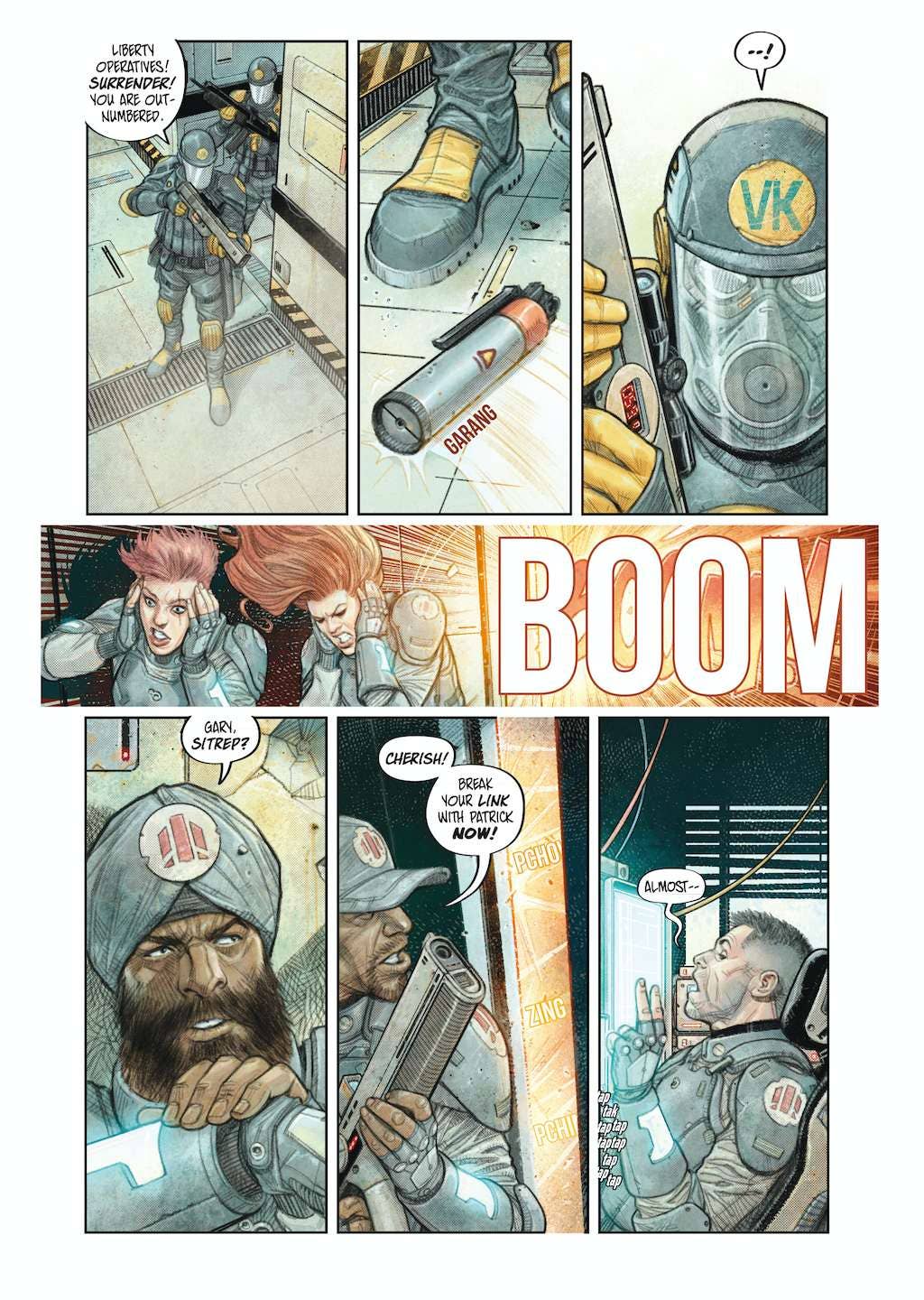
Jones: Very much. Alex is an extraordinary person. A workaholic in the best sense, incredibly well-read, and creative. Our working personalities and interests have enough cross-over that we understand each other's references (mostly!) but we have enough new content to bring to the table that we aren't boring each other! Yes. We would be doing ourselves a disservice if we did NOT work together again!
Nrama: Last question. With a film writer/director doing a comic, we have to ask - would you like to do a Madi film?
Jones: It's a tricky decision, as I am so pleased with how the book turned out! But if anything, it has given me a real confidence in what makes the Madi story tick.
In a sense, it's like I got a chance to rehearse the entire film. That's unique. TV could be really interesting, though, as I could flesh out this world or corporate territorialist world that has been building in my head. There's a lot of really interesting science fiction ideas to mine there.
Read our interview with Duncan Jones about the films that shaped him.
Kat has been working in the comic book industry as a critic for over a decade with her YouTube channel, Comic Uno. She’s been writing for Newsarama since 2017 and also currently writes for DC Comics’ DC Universe - bylines include IGN, Fandom, and TV Guide. She writes her own comics with her titles Like Father, Like Daughter and They Call Her…The Dancer. Calamia has a Bachelor’s degree in Communications and minor in Journalism through Marymount Manhattan and a MFA in Writing and Producing Television from LIU Brooklyn.
